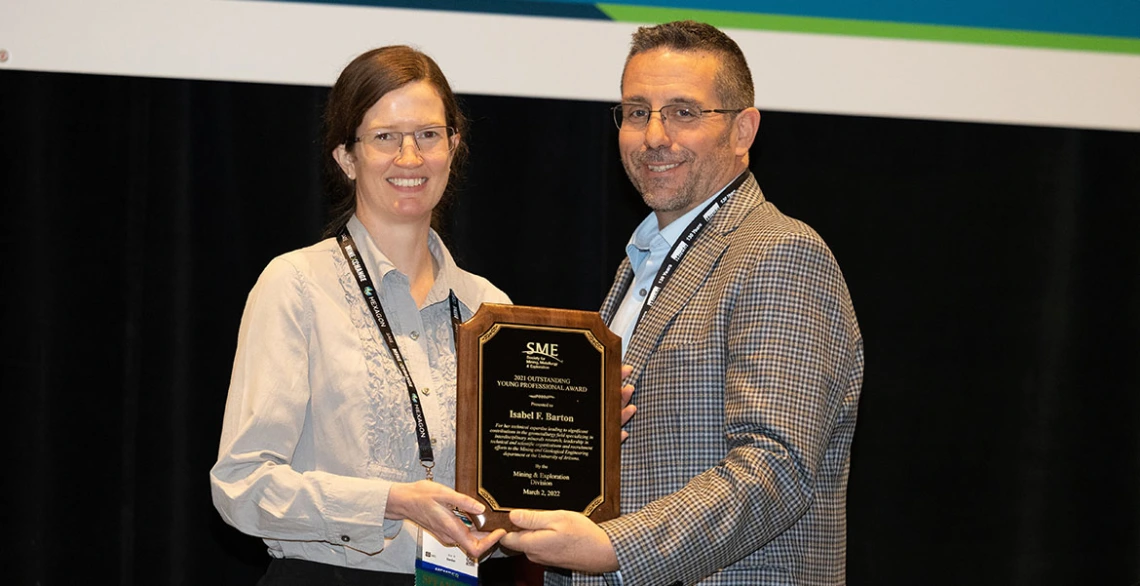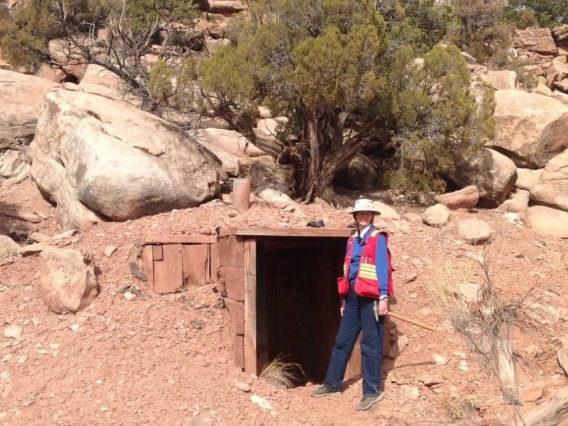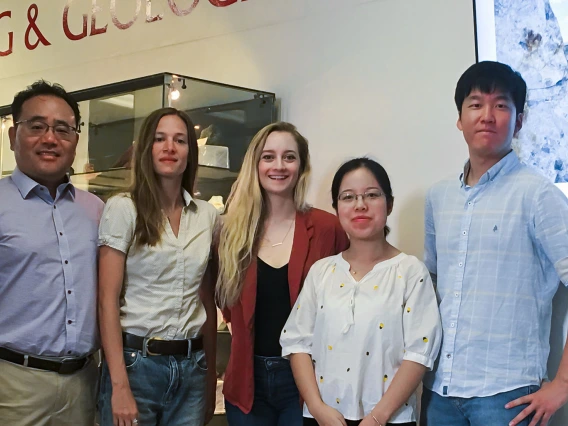Isabel Barton a Force in Modern Mining
Mining Society recognizes young professional for making the UA’s geometallurgy program the nation’s most comprehensive.

No description provided
Interdisciplinary mining researcher and assistant professor Isabel Barton has been honored for her technical expertise, industry leadership and recruitment efforts.
Barton, who is an assistant professor of mining and geological engineering, or MGE, at the University of Arizona, received the 2021 Outstanding Young Professional award from the mining and exploration division of the Society for Mining, Metallurgy and Exploration, or SME, in March. The award recognizes the accomplishments of a young person who has made a significant contribution to the mining and exploration industry.
"I’m proud to see Professor Barton recognized for her commitment to improving the mining industry through innovation and by championing diversity in the field,” said Moe Momayez, interim department head and David and Edith Lowell Chair in Mining and Geological Engineering. “She’s adding to a legacy of faculty and alumni SME Outstanding Young Professional award winners from the UA, and I can’t wait to see our next successful candidates in future years.”
Barton is the second UA faculty member to be honored with this award. Rosa Maria Rojas was selected in 2018, when she was an assistant professor of practice in MGE. Like Rojas, Barton is an alum, having earned three degrees from the UA. The two joined several alums to have been honored with the award: Xavier Ochoa, Robert Pratt, Shaun Graber, Eben Robinson, Philip Joggerst and Claudio Cassio.
Improving the Industry
The SME recognition is a chance for Barton to continue raising awareness about the importance of geometallurgy, which bridges the fields of geology and metallurgy, the science of separating metals from their ores.
“I’m honored to be chosen for this award, and am glad that the importance of geometallurgy is being recognized, especially the UA’s program,” she said.
Barton initiated the UA’s dedicated research and teaching program in geometallurgy at the Lowell Institute for Mineral Resources in 2014. It’s the only active program of its kind in the United States, based in a mining engineering department and offering undergraduate and graduate courses in geometallurgy. The program aims to foster interdisciplinary understanding and communication among geologists, mining engineers and metallurgists. She is the only U.S. professor to teach classes in geometallurgy and maintain a research lab dedicated to the subject. In addition to academic courses, she teaches courses designed for professionals.
“Isabel is building important interdisciplinary bridges in SME as well as in the global mining industry,” said Mary Poulton, professor emerita and past director of the Lowell Institute for Mineral Resources. “With this award, Isabel's work in geometallurgy teaching and research, along with her industry outreach efforts, are recognized by the mining profession as important and significant.”
Geometallurgy is crucial to the future of mining, Barton said, because ore deposits are becoming increasingly mineralogically complex and difficult to exploit.
“Humans have been mining for a long time. The material that’s left is more scarce and not as high grade, and the deposits are getting deeper,” she explained.
Geometallurgy provides tailored approaches to efficiently mine and extract the large volume and variety of metals required to support sustainable technologies ranging from solar panels and windmills to electric vehicles, Barton added.
Barton began developing her interdisciplinary focus with a bachelor’s degree in geology at the University of Oklahoma. She came to the UA in 2008, initially planning to enter the mining industry after earning a master’s degree in geosciences. Instead, she went on to attain a geosciences doctoral degree, then started building the UA’s geometallurgy program. However, she wanted to learn to think like an engineer, so she completed a master’s program in mining engineering with a focus in extractive metallurgy.
That additional layer of education helped Barton better apply her existing geology knowledge to the unique world of geometallurgy and taught her the engineering mindset.
“You can make jokes about it, and people do, but there really are differences in the way engineers and scientists approach questions. I had been trained as a scientist, so it was valuable to get that exposure,” she said.
Now, dividing her time between research and teaching gives Barton ample opportunities to contribute to the field of geometallurgy. She’s also extending knowledge and understanding to the general public with a series of videos on YouTube called How Minerals Made Civilization.
The short videos use historical framing, including the metals of ancient Mexico and minerals that were critical during World War II, to raise awareness of, and interest in, mineral resources.
Barton received a 2021 National Science Foundation CAREER Award, the foundation’s most prestigious award for early-career faculty. The recognition came with a $500,000 grant supporting her research and outreach, including this video series.
Through another grant awarded this year as part of NSF’s Broadening Participation in Engineering Program, Barton is researching why students choose mining as a profession and how engineering departments can attract a more diverse range of students. She is the former chair of the MGE department’s student recruitment committee and remains active in recruitment efforts, always with an effort toward inclusivity.
“STEM fields have a persistent issue with demographics, but mining engineering is one of the least diverse fields,” she said.
Diverse communities are more likely to generate new ideas, which could have a significant impact in an industry facing a supply crunch. And focusing on inclusivity has other far-ranging benefits, Barton said.
“The world is a very broad, diverse place. The more competency students and faculty can develop with working with people of varied backgrounds, the better equipped they will be to succeed.”



